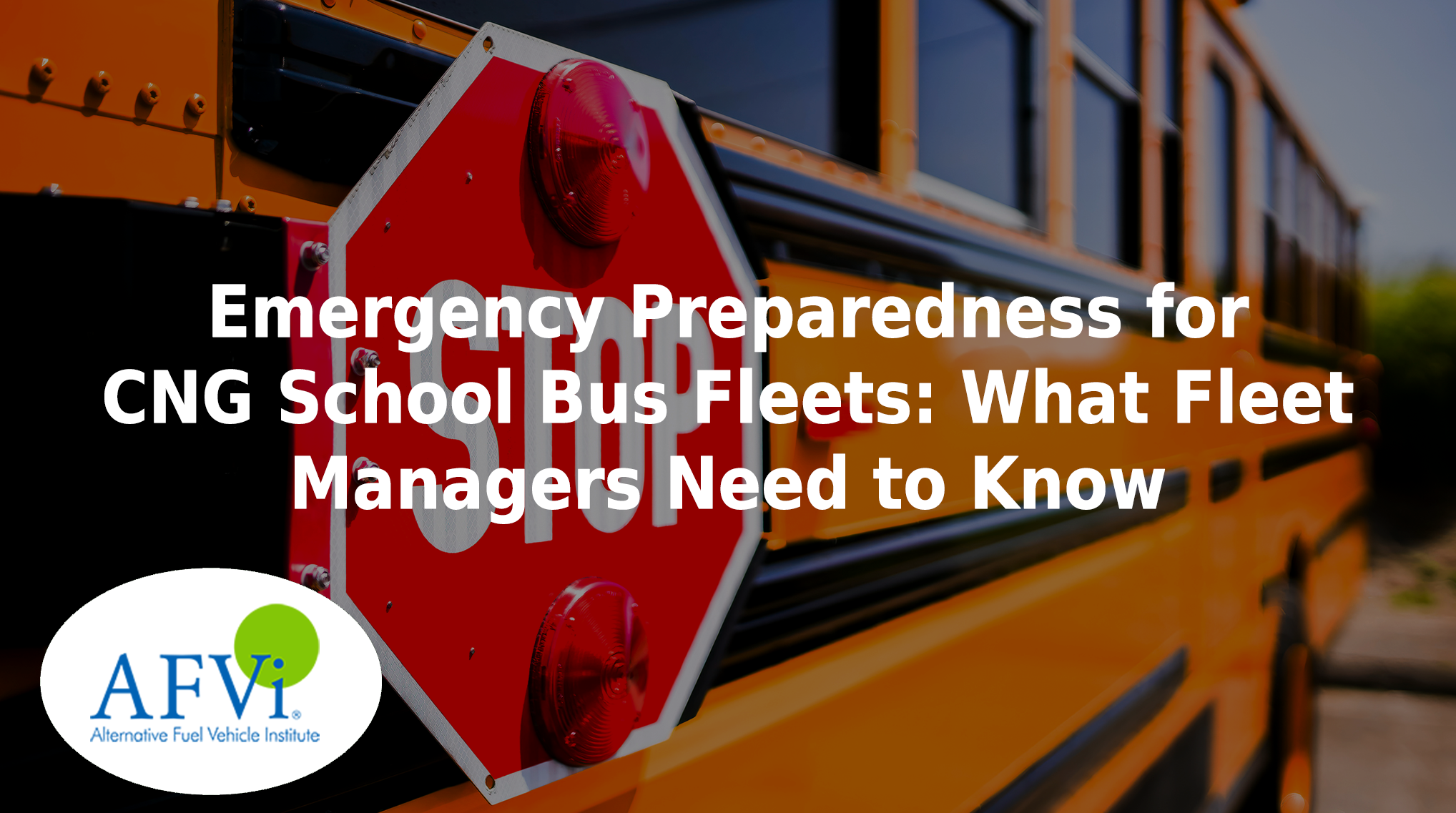Emergency Preparedness for CNG School Bus Fleets: What Fleet Managers Need to Know
Compressed natural gas (CNG) is a safe and reliable alternative fuel, but fleet managers must still provide their technicians with the right training and protocols to handle emergencies effectively. Let’s explore emergency preparedness for CNG school bus fleets and what fleet managers need to know.
Key Aspects of CNG Emergency Preparedness
1. Understanding CNG Fuel System Risks
CNG is stored at high pressures, which means it’s important to understand potential fuel system hazards and have a plan in place to address emergency situations. Fleet managers must:
- Conduct regular safety inspections.
- Train personnel on identifying leaks and CNG fuel system irregularities.
- Implement effective emergency protocols.
Resources such as NFPA 52 outline best practices to avoid potential hazards associated with natural gas vehicles.
2. Developing a Comprehensive Emergency Response Plan
An effective emergency response plan includes:
- Clearly defined emergency procedures for drivers and technicians.
- Collaboration with local fire departments and first responders on how to address natural gas vehicle accidents.
- Training to ensure that your team is ready to respond in the event of an incident.
3. Training Drivers and Technicians for Emergency Situations
Comprehensive training will prepare your staff for real-world situations. Critical areas of training include:
- Proper response in the case of a CNG bus fire.
- Correct leak detection practices.
- When and how to implement a CNG fueling station shut down.
4. Complying With Safety Regulations
To maintain a safe fleet of CNG buses, fleet managers must comply with:
- FMVSS 304, issued by the Department of Transportation.
- NFPA 52, to meet cylinder inspection regulations.
- Any individual state requirements for NGVs.
How AFVi Supports CNG Emergency Preparedness
AFVi provides expert training programs to help fleet managers and technicians implement best practices for CNG emergency preparedness. Our programs ensure:
- Understanding of industry safety requirements.
- Instruction on CNG emergency protocols.
Be proactive in emergency preparedness — equip your fleet with the knowledge and training needed to respond effectively. Contact us today to learn more.


